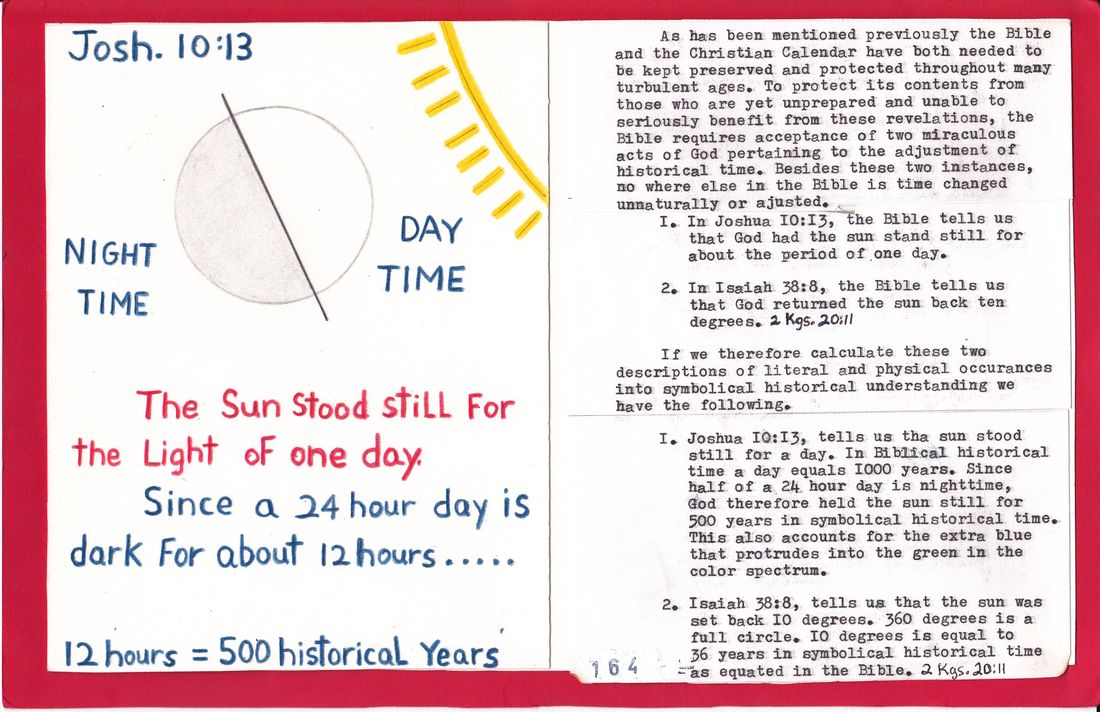I began looking into the Exodus recently and I ran into an idea which is interesting. Apparently, there are those who think the exodus occurred a millennia earlier than the common story. I realize a lot of people don't think the Exodus happened at all, but perhaps there is some historical bases to it, however distorted this story has become. In any case, the first article I found which makes this claim is "When was the Exodus? By Brad Aaronson" From the article:
This is interesting considering that Moses was supposed to be about 80 years old, so if the said exodus happened, the Pharaoh who adopted Moses would have to be older than 80, but it get's more interesting:
I found this interesting, so I did some more research and found another similar claim from "the biblical chronologist" by Dr. Gerald E. Aardsma.
The author apparently claims he can match the exodus with Jericho and also suggests the site of Sinai which matches the time period. A similar claim for Sinai is mount Har Karkom "(2350-2000 BC)".
The earliest proposal of this time period seems to be from "COMPENDIUM OF WORLD HISTORY VOLUME 1 by Herman L. Hoeh 1962" It is also claimed here that Moses is a general mentioned around that time period. I thought this was all interesting so I looked up the time period on wikipedia and apparently Pepi II was succeeded by Merenre Nemtyemsaf II who was murdered after one year of being Pharaoh. In myth, the Pharaoh who succeeded him was a woman who allegedly locked the murderers of Merenre Nemtyemsaf II in a room drowning them with water from the Nile. After her reign of about a year, I think Egypt declined into anarchy and was invaded (don't quote me on that though).
This is all extremely interesting to me, but I need to do some more research. Do you guys think this could be some how the origin of the Exodus story? I'm hoping for some input incase this is all untrue and not worth looking into further. Thanks!
According to the Midrash.... The Pharaoh....whose death prompted Moses' return to Egypt (Exodus 2:23, 4:19)..... reigned from the age of six to the age of 100. Such a long reign - 94 years! - sounds fantastic, and many people would hesitate to take this Midrash literally. As it happens, though, Egyptian records mention a Pharaoh who reigned for 94 years, and not only 94 years, but from the age of six to the age of 100! This Pharaoh was known in inscriptions as Pepi (or Phiops) II.
This is interesting considering that Moses was supposed to be about 80 years old, so if the said exodus happened, the Pharaoh who adopted Moses would have to be older than 80, but it get's more interesting:
Its author, an Egyptian named Ipuwer, writes in the document below:
Plague is throughout the land. Blood is everywhere. (2:5)
The river is blood (2:10)
That is our water! That is our happiness! What shall we do in respect thereof? All is ruin! (3:10-13)
Trees are destroyed. (4:14)
No fruit or herbs are found . . . (6:1)
Forsooth, grain has perished on every side. (6:3)
The land is not light [dark]. (9:11)
Nile overflows [bringing the harvest], yet no one ploughs for him. (2:3)
No craftsmen work, the enemies of the land have spoilt its crafts. (9:6)
Gold and lapus lazuli, silver and malachite, camelian and bronze . . . are fastened on the neck of female slaves. (3:2)
I found this interesting, so I did some more research and found another similar claim from "the biblical chronologist" by Dr. Gerald E. Aardsma.
The author apparently claims he can match the exodus with Jericho and also suggests the site of Sinai which matches the time period. A similar claim for Sinai is mount Har Karkom "(2350-2000 BC)".
The earliest proposal of this time period seems to be from "COMPENDIUM OF WORLD HISTORY VOLUME 1 by Herman L. Hoeh 1962" It is also claimed here that Moses is a general mentioned around that time period. I thought this was all interesting so I looked up the time period on wikipedia and apparently Pepi II was succeeded by Merenre Nemtyemsaf II who was murdered after one year of being Pharaoh. In myth, the Pharaoh who succeeded him was a woman who allegedly locked the murderers of Merenre Nemtyemsaf II in a room drowning them with water from the Nile. After her reign of about a year, I think Egypt declined into anarchy and was invaded (don't quote me on that though).
This is all extremely interesting to me, but I need to do some more research. Do you guys think this could be some how the origin of the Exodus story? I'm hoping for some input incase this is all untrue and not worth looking into further. Thanks!
Last edited:

